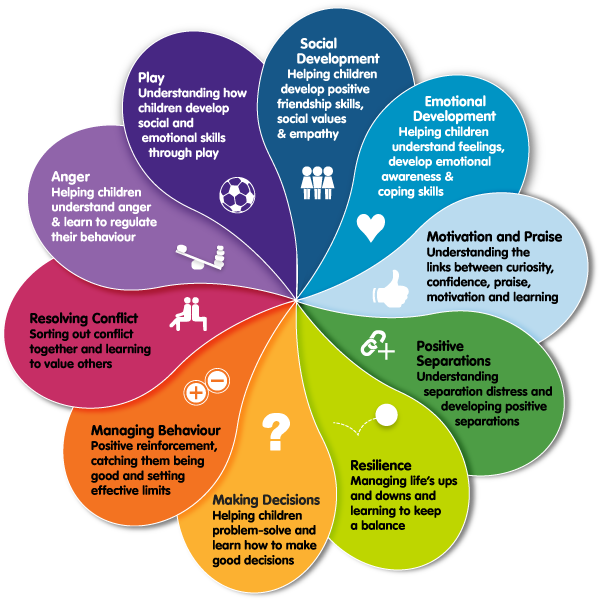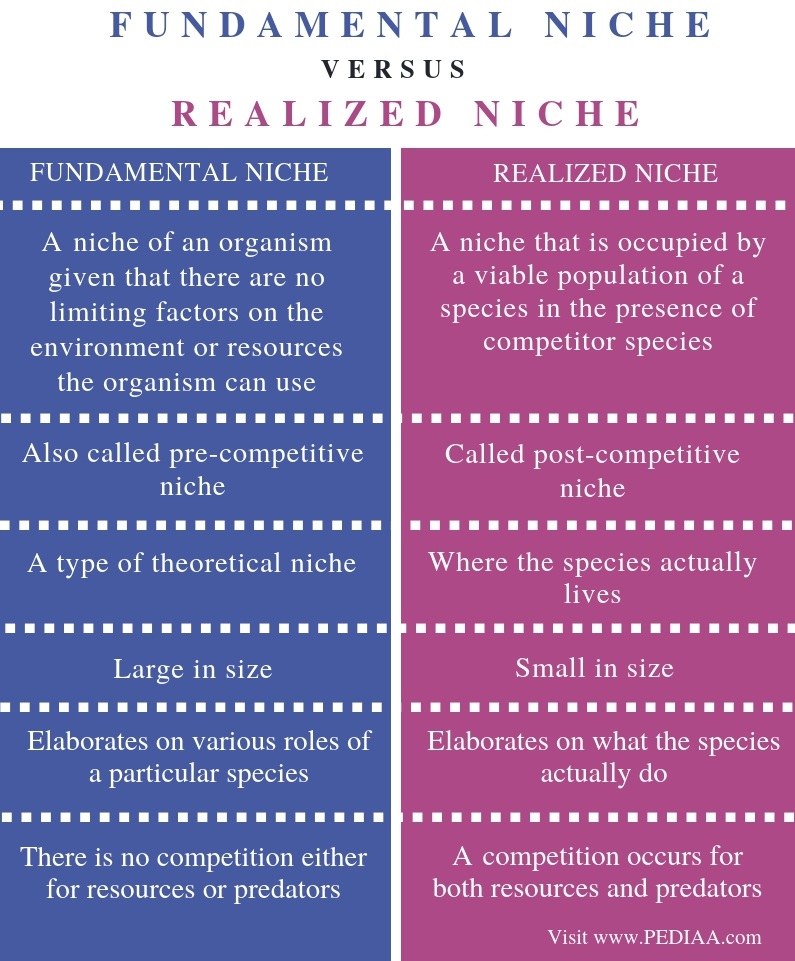Signs you were in an abusive relationship
How To Know If You Are In An Abusive Relationship
A Leader in Young Adult Mental Health Treatment
Contact Us 855-895-4468 Get Started
- Home
- Resources
- Co-Occurring Disorders
- How to Know If You Are in an Abusive Relationship
Not all abusive relationships are physically violent. In fact, emotional abuse within relationships is even more common than physical abuse. And it’s harder to recognize, because it can masquerade as an intense form of love and devotion. An abusive relationship often seems incredibly passionate and romantic at first, and then gradually descends into manipulation and cruelty.
Research shows that young adults are more vulnerable to abusive relationships than other age groups, particularly emotional abuse. Young women in their mid-20s are most likely to experience abuse within a romantic relationship, and the World Health Organization reports that about a third of all women report having been in at least one abusive relationship with a partner.
Moreover, a platonic relationship can also be abusive—such as a relationship with a co-worker, a parent, or a friend.
Read on for tips on how to know if you’re in an abusive relationship.
What Is Considered Abusive Behavior?An abusive relationship—also known as domestic violence, intimate partner violence, or dating abuse—involves one partner attempting to cause physical, sexual, or psychological harm to the other. This can encompass a wide range of behaviors. For example, sexual abuse within a relationship refers not just to violent sexual behavior or forcing someone to have sex when they don’t want to, but also involving other people in a couple’s sexual activities when one partner doesn’t want to, ignoring a partner’s feelings regarding sex, or pressuring someone to dress in a sexual way.
In cases of psychological abuse, also known as emotional abuse, the abuser uses words and actions to frighten, control, and isolate their partner. Emotional abuse includes the following categories and signs of abusive behavior:
- Humiliation: insulting, criticizing, name-calling, embarrassing the other person in public, belittling their accomplishments, posting unflattering photos or videos of them on social media
- Control: acting jealous and possessive, monitoring the other person’s behavior, reading their texts and emails, demanding all their time and attention, pressuring them to use drugs or alcohol, using social media to track their activities, trying to control who they follow on social media
- Blaming and gaslighting: accusing the other person of cheating, denying abusive behavior or blaming it on the victim, claiming their problems are the other person’s fault
- Neglect and isolation: refusing to communicate, turning other people against the victim, withholding affection, preventing the other person from seeing friends or family
Know the Facts
By age 28, 56 percent of young adults say they have either perpetrated or been a victim of some form of relationship abuse, according to the National Institute of Justice.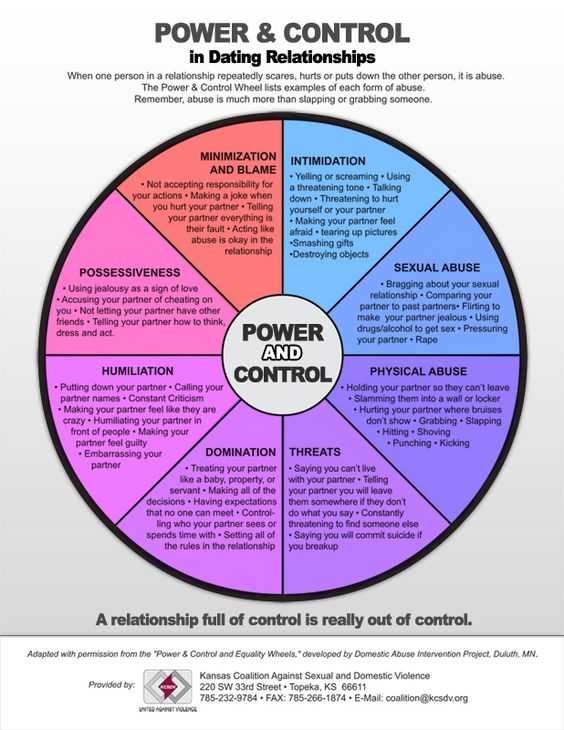
Abusive relationships can be codependent, and vice versa. In a codependent relationship, one or both people experience an unhealthy level of reliance on the other. A codependent person may feel they are worthless without the other person. Sometimes referred to as a “relationship addiction,” codependency disorder is typically associated with low self-esteem, fear of being abandoned, and poor communication, among other symptoms and behaviors. Parents and children, siblings, romantic partners, and even friends can have codependent relationships with one another.
Codependency is often associated with relationships in which one or more people struggle with substance abuse or other addictions. However, there are other causes of codependent behavior, such as mental illness or abuse within a relationship or family. For young adults, codependency disorder is often the result of attachment wounds experienced in their family of origin. If the parent-child relationship was dysfunctional, emerging adults can struggle with codependent behavior as they begin forging relationships outside the family.
If the parent-child relationship was dysfunctional, emerging adults can struggle with codependent behavior as they begin forging relationships outside the family.
Psychologically or mentally abusive relationships are especially insidious because the victim becomes accustomed to their partner’s behavior, thinks it’s “normal,” and has started to believe what their abuser says about them. If you think you or a loved one might be in this situation, consider whether one or more of these 10 signs of an abusive relationship are present.
1. You don’t feel free to make your own choices. The other person tells you how to dress and how to act, tries to control who you spend time with, and keeps track of where you go and what you do all the time.
2. You’re always apologizing. You’re afraid of how your partner may react, so you apologize for your actions, even if you’re not sure what you’re sorry for, in order to head off their anger and accusations.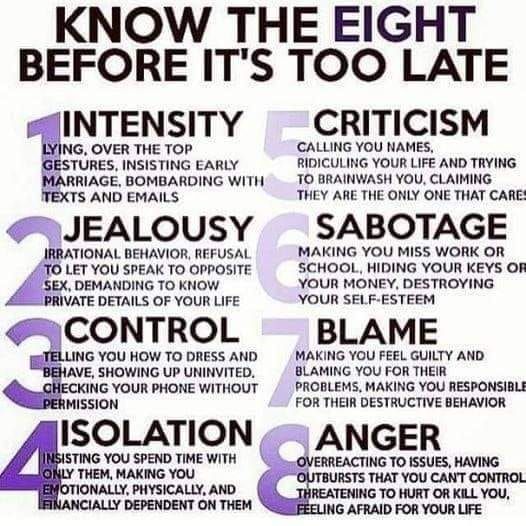
3. You don’t talk about the relationship with friends or family. You avoid discussing the other person, minimize their abusive behavior, or make excuses for it if your friends or family members call it out.
4. Your partner “love bombs” you. They try to make up for abusive behavior with exaggerated compliments, extravagant gifts, or telling you they “can’t live without you.”
5. You feel like everything that’s wrong with the relationship is your fault. Emotional abuse often includes convincing the other person that they need to be criticized and told what to do because of their poor behavior, and if they were “better,” there wouldn’t be a problem.
6. Your disagreements turn into screaming fights. Rather than being productive, arguments escalate into yelling and insults that may feel threatening and scary.
7. You never know which version of your partner you’re going to get. They’re hot and cold by turns, sometimes withdrawn or insulting, and then drawing you back in by being suddenly attentive and loving.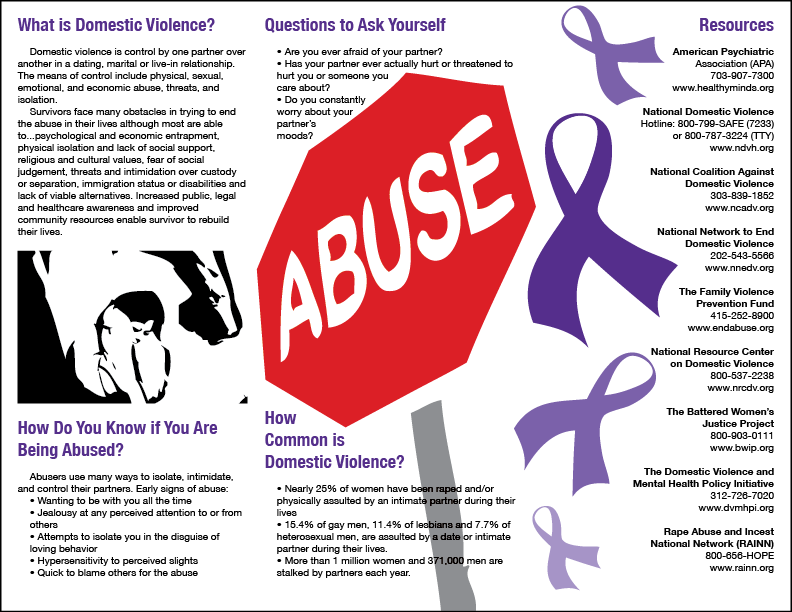
8. You get shut down when you try to communicate. The other person dismisses your needs or concerns, or responds to them with sarcasm or disgust.
9. You’ve lost confidence in your own perspective. You’ve been told so many times that you’re wrong, stupid, or crazy that you’ve started to believe it.
10. You’ve forgotten what you used to be like before the relationship. You spend so little time on your own, doing things you care about, or spending time with close friends that you don’t remember what it felt like to be a strong and independent person.
The Mental Health Consequences of Being in an Abusive RelationshipAbusive relationships take a heavy toll on an individual’s self-esteem, self-worth, well-being, and sense of autonomy. The mental health consequences can include depression, anxiety, suicidal thoughts, and feelings of shame and guilt. In addition, abusive relationship PTSD may lead to similar symptoms as other types of PTSD: flashbacks, social withdrawal, difficulty concentrating, chronic pain, and insomnia.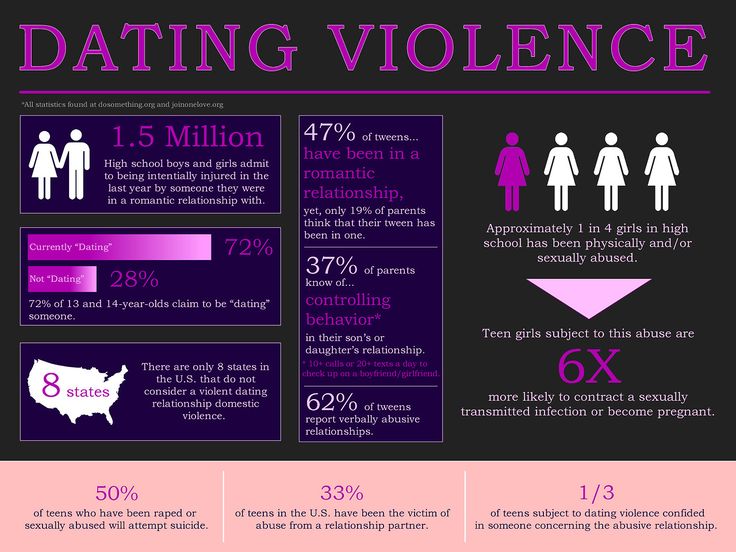
In a study of young adults (ages 18–25), female participants who had experienced relationship abuse as teens reported more heavy drinking, depressive symptoms, suicidal ideation, and smoking, as compared to study participants who had not been abused. Male participants who had been victims of abuse reported increased antisocial behaviors, suicidal ideation, and marijuana use.
Moreover, both young women and young men who had experienced abuse were more likely to have been in more than one abusive relationship. Once an individual adapts to being victimized and starts to believe they deserve to be treated this way, they may return to this pattern in relationships until they take action to stop the cycle.
Healing from an Abusive RelationshipOnce an abusive relationship is over, it’s important to take steps to repair the damage it has done to one’s self-worth, self-confidence, independence, and ability to trust others. Recovering from emotional abuse begins with acknowledging that the abuse took place, rather than minimizing or denying it to yourself.
The next step is to start changing the mental patterns that are linked to abuse. That includes shifting negative thoughts and beliefs, such as thinking the abuse was all your fault, that you will never be in a heathy relationship, or that you could have done something different that would have prevented the abuse. In addition, healing from an emotionally abusive relationship involves honoring your own needs and desires by doing what you love and what makes you truly happy. That includes cultivating authentic connections with trusted friends who have your best interests at heart, and practicing self-care to rebalance the nervous system after the chronic stress of an abusive relationship.
At Newport Institute, we support young adults in recovering from emotional abuse by guiding them to explore underlying causes, rebuild self-worth, and find their own footing as a strong, independent individual who deserves to be loved exactly as they are. Contact us today to find out more about our approach to young adult mental health treatment.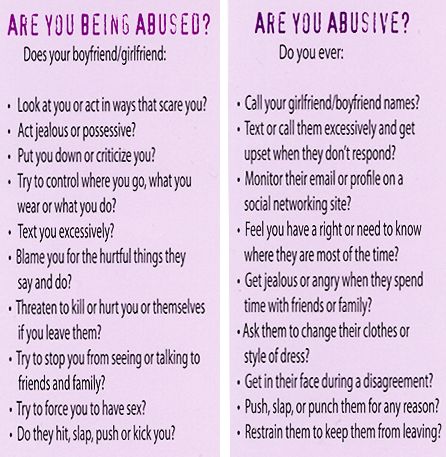
If you need support in leaving an abusive relationship, call the National Domestic Violence Hotline at 800-799-SAFE (7233). If you feel physically threatened, call 911 immediately.
Sources
Violence Vict. 2013; 28(5): 804–821.
Pediatrics. 2013 Jan; 131(1): 171–8.
Prev Med. 2002 Nov; 3(4): 260¬–8.
Co-Occurring Disorders / July 8, 2021
What It Is and Signs to Watch For
You might be familiar with many of the obvious signs of emotional abuse and manipulation. But when you’re in an abusive situation, it’s easy to miss the subtle early signs that build up to a a persistent undercurrent of abusive behavior.
Emotional abuse involves attempts to frighten, control, or isolate you. This type of abuse doesn’t involve physical violence, though it might involve threats of violence directed toward you or your loved ones.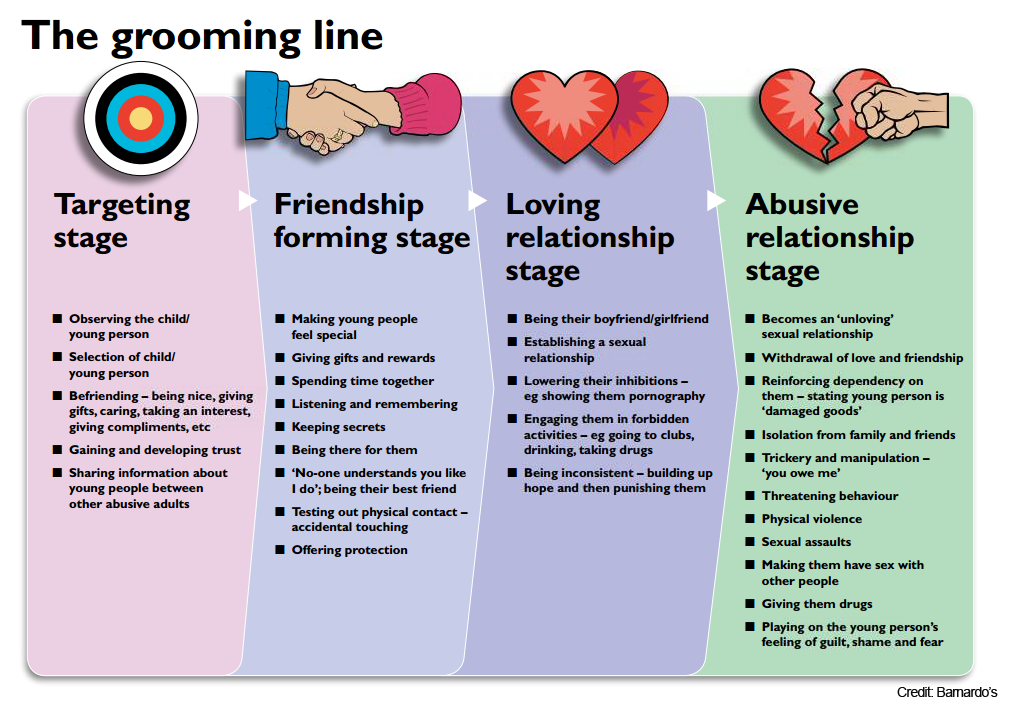 It’s characterized by a person’s words, actions, and the consistency of these behaviors. Abuse may start gradually, but it happens again and again.
It’s characterized by a person’s words, actions, and the consistency of these behaviors. Abuse may start gradually, but it happens again and again.
People of any age or gender can abuse or experience abuse. And abuse doesn’t just happen in the context of romantic relationships. The person abusing you could be your spouse or romantic partner — but they might also be your business partner, parent, caretaker, or even your adult child.
Regardless, you don’t deserve the abuse, and it’s definitely not your fault.
Continue reading to learn how to recognize the signs of emotional abuse and get some guidance on what to do next.
Someone abusing you may use different tactics to undermine your self-esteem.
Examples include:
- Name-calling and derogatory nicknames. They’ll blatantly call you “stupid,” “a loser,” or use other insults. Maybe they use terms of “endearment” that actually highlight things you’re sensitive about — “my little nail biter” or “my chubby pumpkin” — and ignore your requests to stop.
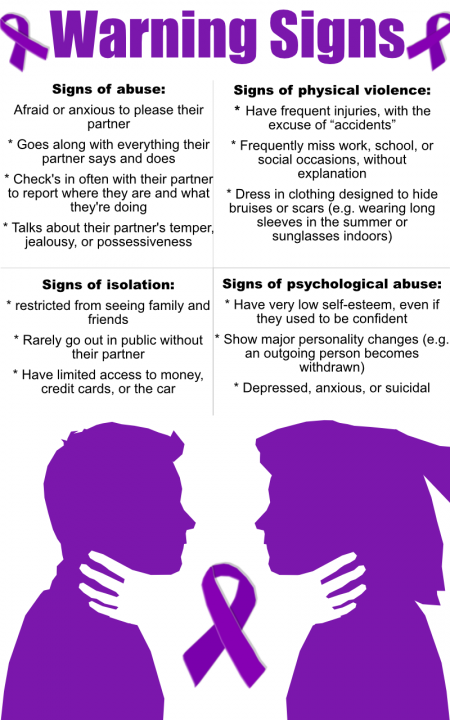
- Character assassination. This usually involves the word “always.” You’re always late, wrong, screwing up, disagreeable, and so on. They might say these things to you, or use them to describe your behavior to others.
- Yelling. Screaming, yelling, and swearing can intimidate you and make you feel small and inconsequential. Maybe they never hit you, but they do pound their fist, throw things, or damage property.
- Patronizing. They belittle you by saying things like, “I know you try, but this is just beyond the scope of your brain.”
- Public embarrassment. They pick fights, share your secrets, or make fun of your shortcomings in public.
- Dismissiveness. You share something important to you and they reply with, “What? Who cares about that?” Body language like eye rolling, smirking, head shaking, and sighing help convey the same message.
- “Joking.” When you express discomfort with something they’ve said, they snap back, “Can’t you take a joke? Grow up.
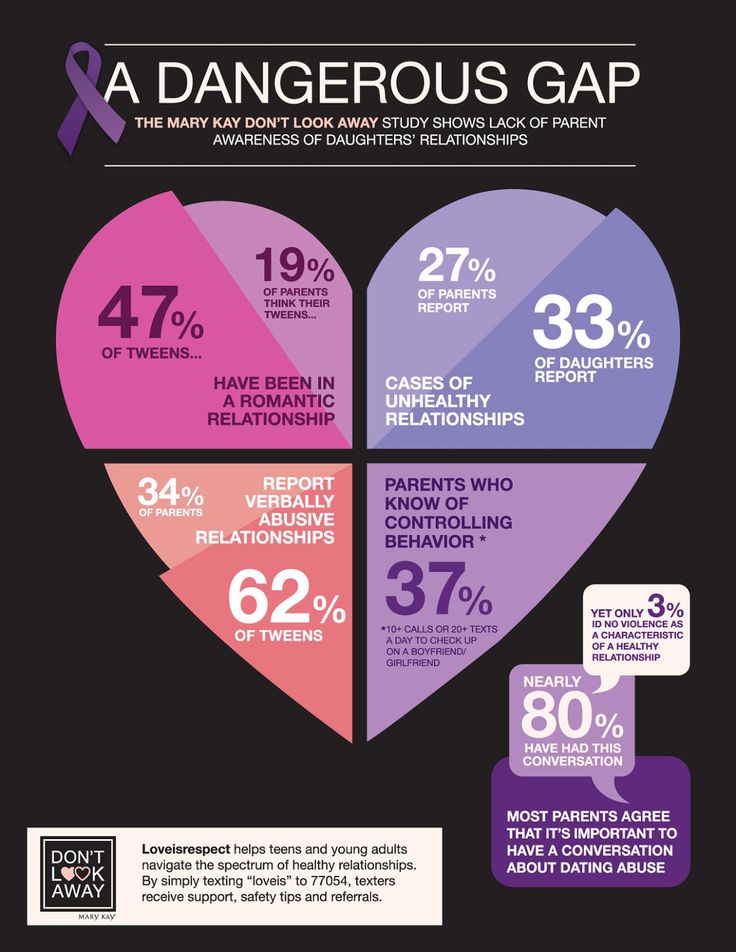 ” You’re left feeling foolish and wondering whether you are, in fact, too sensitive.
” You’re left feeling foolish and wondering whether you are, in fact, too sensitive. - Insulting your appearance. As you head out, they stop you at the door. “You’re wearing that ridiculous outfit? No wonder you can’t get a date.” Or they constantly say you’re lucky they chose you, since they could find someone so much more attractive.
- Belittling your accomplishments. They brush off your achievements, saying they don’t matter, or claim responsibility for your successes.
- Putting down your interests. They suggest your hobby is a waste of time. “You’ll never be any good at the piano, so why do you keep trying?” Really, they’d rather you not participate in activities without them.
- Pushing your buttons. Once they find something that annoys you or makes you uncomfortable, they begin to mention it every chance they get, ignoring your requests that they stop.
Abusive behavior relates to the desire to maintain power and control. Someone abusing you might attempt to manipulate you into doing what they want you to do, often by making you feel ashamed of your inadequacies.
Someone abusing you might attempt to manipulate you into doing what they want you to do, often by making you feel ashamed of your inadequacies.
They may try to control you by:
- Making threats. They imply — or say outright — that they’ll fire you or report you for being an unfit parent. They might even say something like, “There’s no telling what I might do,” to keep things vague and leave you afraid.
- Monitoring your whereabouts. They want to know where you are, always, and insist you respond to calls or texts immediately. They might show up at your work or school, just to check you did actually go there.
- Spying on you digitally. They demand your passwords, or insist you go password-free, and regularly check your internet history, emails, texts, and call log.
- Gaslighting. Someone abusing you may deny that specific events, arguments, or agreements ever happened. This tactic can leave you questioning your own memory, not to mention your mental health and well-being.
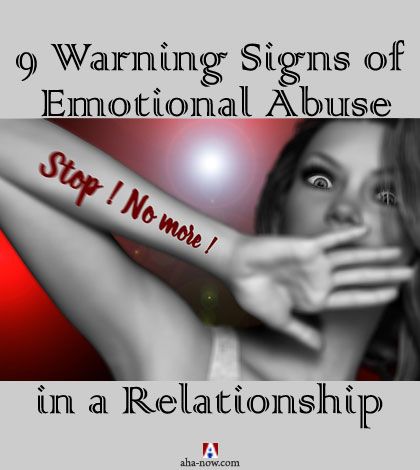
- Making all the decisions. This might involve closing a joint bank account and canceling doctor’s appointments. They may insist you withdraw from school and resign from work — or do so on your behalf. Or maybe they tell you what to wear, what to eat (and how much), or which friends you can spend time with.
- Controlling your access to finances. They keep bank accounts in their name and make you ask for money. They also expect you to keep your receipts and account for every penny you spend.
- Emotional blackmailing. Someone using this tactic will attempt to get you to do things by manipulating your feelings. They might use tricky questions to “test” you, take on the role of victim, or try to guilt-trip you.
- Lecturing you constantly. After you make a mistake, no matter how minor, they catalog all of your errors with a long monologue. They describe all the ways you’ve fallen short and make it clear they consider you beneath them.

- Giving direct orders. From, “I don’t care what happened. You stay here until you get that client back, or you’re fired,” to “Stop taking the pill,” they expect you to do everything they say without question.
- Having frequent outbursts. They told you to cancel that outing with your friend, or put the car in the garage, but you didn’t. So, they become enraged, angrily shouting about how inconsiderate and uncooperative you are.
- Feigning helplessness. They say they don’t know how to do something, hoping you’ll simply do it yourself instead of taking the time to explain it.
- Unpredictability. They explode for no clear reason, then suddenly shower you with affection. Or maybe their mood shifts from upbeat to dark and angry with little warning, leaving you never sure what to expect.
- Walking out. A partner or parent might leave a social event suddenly, so you have no way home.
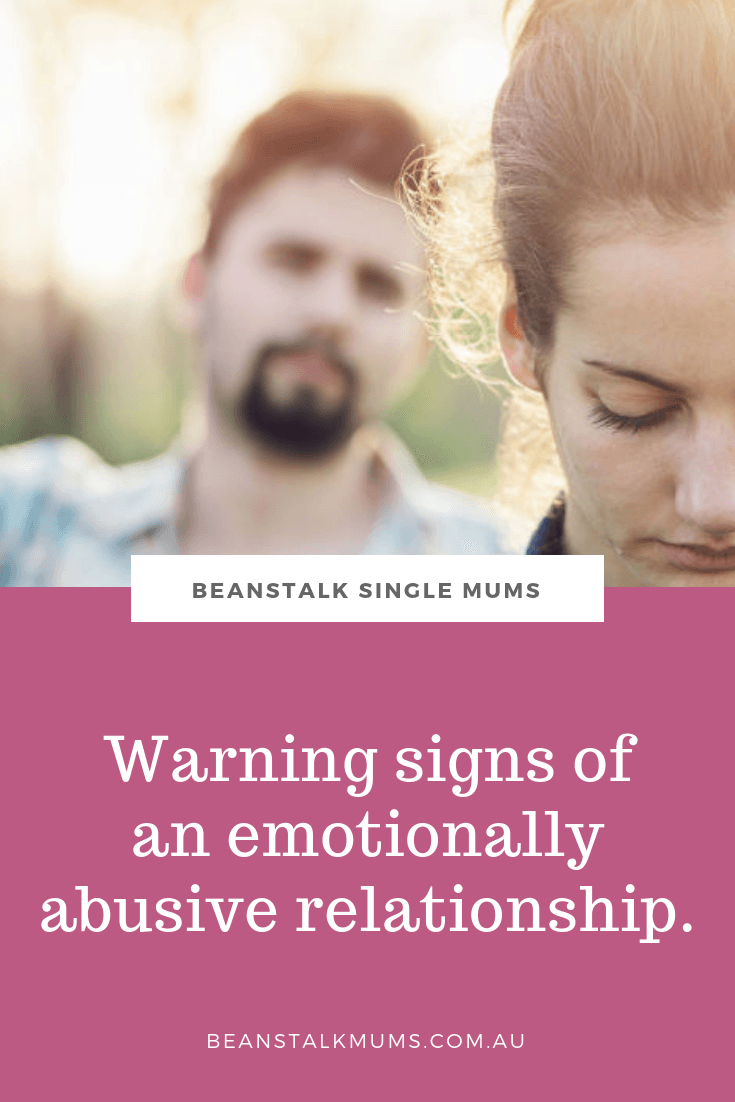 A supervisor might exit during a discussion about your assignment, so your questions remain unresolved.
A supervisor might exit during a discussion about your assignment, so your questions remain unresolved. - Stonewalling you. During a disagreement or conflict, they shut down, refusing to respond to your attempts to communicate.
People who abuse others often try to create a hierarchy that puts them at the top and you at the bottom.
Examples might include:
- Jealousy. They accuse you of flirting or cheating, or say you’d spend all your time with them if you truly loved them.
- Using guilt. They might try to guilt-trip you into doing something by saying things like, “You owe me this. Look at all I’ve done for you,” in an attempt to get their way.
- Unrealistic expectations. They expect you to do what they want, when they want you to do it. They think you should always prioritize their needs, do things according to their standards — and you absolutely shouldn’t hang out with your friends or family if there’s any chance they might need you.
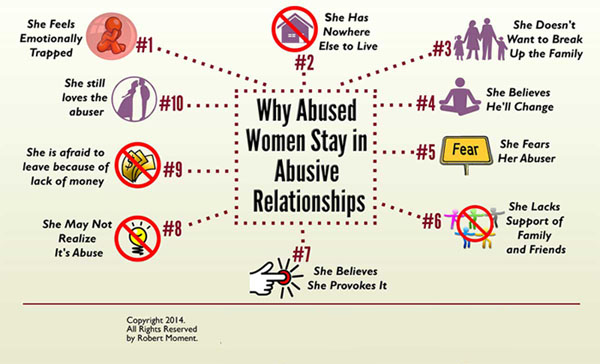
- Goading and blaming. People who manipulate and abuse typically know just how to upset you. But once you do get upset, they pin the blame back on you — after all, it’s your fault for being so sensitive and incompetent.
- Denying the abuse. When you express concerns about their behavior, they might deny it, seemingly bewildered at the very thought. They may even suggest you’re the one with anger and control issues, or say they only get angry because you’re such a difficult person.
- Trivializing. When you explain how much something they said or did upset you and hurt your feelings, they accuse you of overreacting or misunderstanding the situation.
- Blaming you for their problems. When things go wrong, they always blame you. If only you’d been a more loving child, a more supportive partner, or a better parent, they might say, their life would be fantastic.
- Destroying and denying.
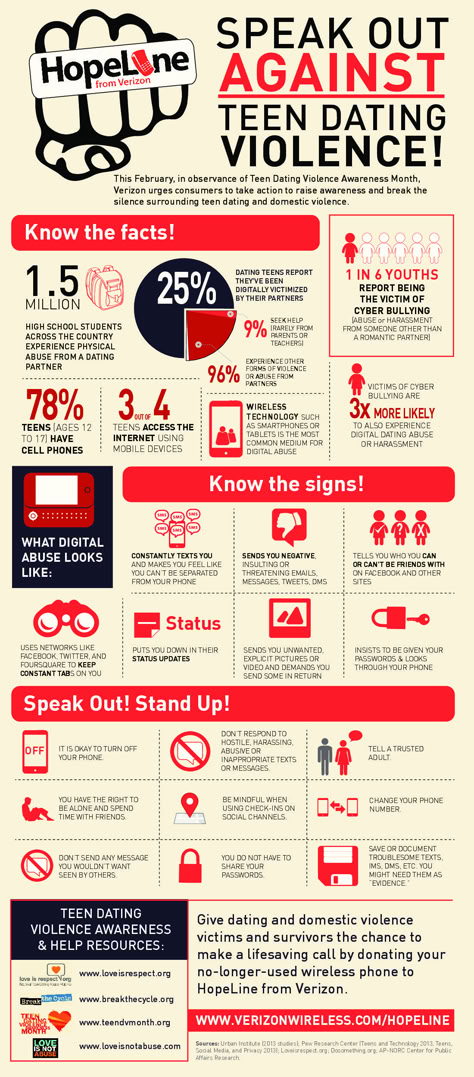 They might throw your phone down to break it, “lose” your car keys, or destroy other important possessions, then deny it or say it happened accidentally.
They might throw your phone down to break it, “lose” your car keys, or destroy other important possessions, then deny it or say it happened accidentally.
Someone abusing you will generally try to get you to prioritize their needs and neglect your own.
Often, they’ll also make an effort to isolate you by coming between you and your supportive loved ones — a step which, of course, leaves you more dependent on them.
Tactics they might use include:
- Dehumanizing you. They’ll intentionally look away when you’re talking or stare at something else when speaking to you in an effort to make you feel unimportant.
- Keeping you from socializing. Whenever you have plans to go out, they come up with a distraction or beg you not to go.
- Invalidating you. They might suggest or say straight out that your needs, boundaries, and desires don’t matter to them.
- Trying to come between you and your family.
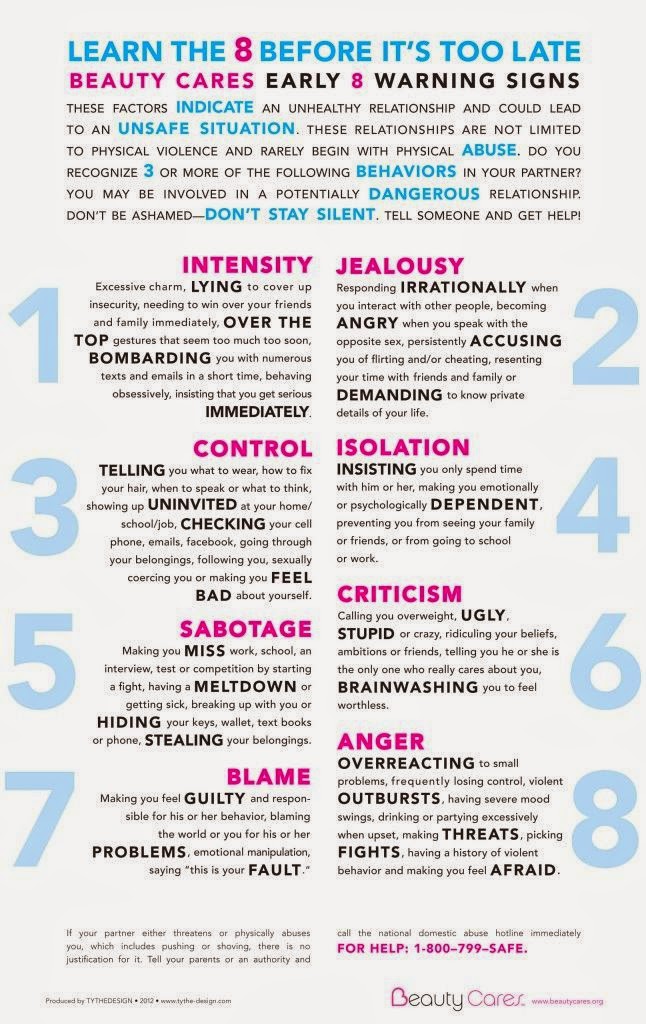 They’ll tell family members you don’t want to see them or make excuses why you can’t attend family functions. Later, they might tell you that your loved ones don’t care about you or think there’s something wrong with you.
They’ll tell family members you don’t want to see them or make excuses why you can’t attend family functions. Later, they might tell you that your loved ones don’t care about you or think there’s something wrong with you. - Using the silent treatment. They might ignore your attempts at conversation in person, via text, or over the phone.
- Withholding affection. They won’t touch you, even to hold your hand or pat you on the shoulder. They may refuse to have any intimate contact if you offend them, or they want you to do something you don’t want to do.
- Shutting down communication. They might wave you off, change the subject, or simply ignore you when you want to talk about important concerns.
- Actively working to turn others against you. They might tell other people in your life, including co-workers, friends, and even your family, that you lie, have lost touch with reality, or have had an emotional breakdown.

- Denying support. When you need emotional support or help with a problem, they might call you needy, say the world can’t stop and wait on your problems, or tell you to toughen up and fix it yourself.
- Interrupting. They might get in your face when you’re in the middle of an activity and take away your phone or anything else in your hands to let you know your attention should be on them.
- Disputing your feelings. No matter what feeling or emotion you express, they might insist you shouldn’t feel that way. For example, “You shouldn’t be angry over that,” or “What have you got to feel sad about?”
Learn more about codependency and how to overcome it.
If you believe you’re experiencing emotional abuse, trust your instincts.
Abuse is never your fault, and you don’t have to live with it
If you fear immediate physical violence, get to a safe place if you can. You can also call 911 or your local emergency services for help.
If you aren’t in immediate danger and you need to talk or find some place to go, call the National Domestic Violence Hotline at 800-799-7233. This free, confidential 24/7 hotline can put you in touch with service providers and shelters across the United States.
Find more resources here.
These tips offer a place to start:
- Don’t try to fix them. You may want to help, but it’s often difficult for abusive people to change their behavior without professional support. You can encourage them to work with a therapist, but they have to make the choice themselves.
- Avoid self-blame. Remember, you never deserve abuse, no matter what you’ve said or done. The only person responsible is the one engaging in abusive behavior.
- Prioritize your needs. Taking care of your physical and emotional needs can help you move forward to a place where you feel comfortable setting boundaries, reaching out for support, and leaving the abusive situation.

- Avoid engaging with them. Don’t reply to their text messages, phone calls, or emails. If you can’t avoid working or spending time with them, try to keep another person with you and limit your conversation to essential topics.
- Set personal boundaries. Decide how you’ll avoid responding to manipulation or getting pulled into arguments. Express those limits to the person using abuse tactics and stick to them. You might say, for example, “If you call me names, I’ll go home,” or, “If you start teasing me in public, I’ll leave.”
- Build a support network. It might feel frightening to open up about what you’ve experienced, but reaching out to loved ones and a supportive therapist can go a long way toward helping you get the support you need to heal.
- Exit the relationship or circumstance. State clearly that the relationship is over and cut all ties, if possible. Block their number and social media accounts, and ignore attempts to reach out.
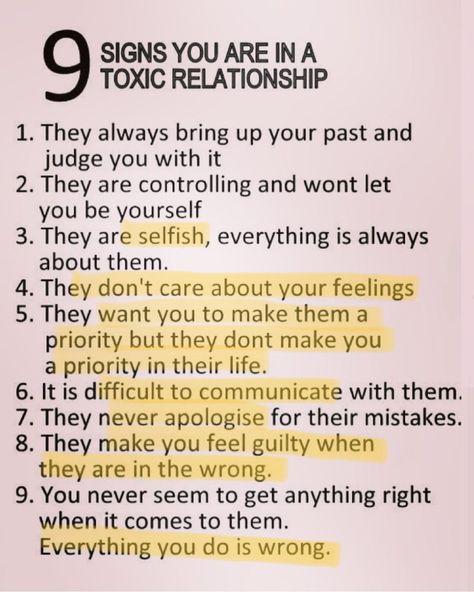
- Give yourself time to heal. Take space to focus on your needs and recovery. This might involve rediscovering your sense of self, creating a new self-care routine, and talking with a therapist who can offer guidance with recovery.
Leaving an abusive relationship often proves more challenging if you’re married, have children, or have shared assets. If that’s your situation, a good next step involves seeking legal assistance.
A domestic violence advocate or mental health professional can also help you develop an exit plan to leave the relationship safely.
The following resources can also help you come up with a plan:
- DomesticShelters.org. Visit this website for educational information, a free hotline, and a searchable database of services in your area.
- Love Is Respect. This nonprofit organization offers teens and young adults a chance to chat online, call, or text with advocates.
Need to Run: 22 Signs You're Dating an Abuser
In relationships, we seek love, care, and acceptance. But some people don't need it. They want only one thing: complete control over their partner. And they achieve this in all possible ways - from subtle manipulations to threats, harassment and beatings.
But some people don't need it. They want only one thing: complete control over their partner. And they achieve this in all possible ways - from subtle manipulations to threats, harassment and beatings.
Psychologists call such people abusers (from English abuse - violence, abuse). The consequences of a relationship with such a partner can be catastrophic. These are mental disorders (insomnia, depression, anxiety and post-traumatic stress disorder), physical injury, or even death if the aggressor has turned to physical violence. nine0003
The best way to protect yourself from this is to recognize such a person in time and cut off any relationship with him. Here are the phrases and actions that betray the abuser.
What signals should not be ignored
Humiliation and criticism
The aggressor will definitely try to undermine your self-esteem. And here's how he'll do it.
1. “You are my little pig…”
At first, the abuser will not openly insult the victim, otherwise she will be indignant and off the hook.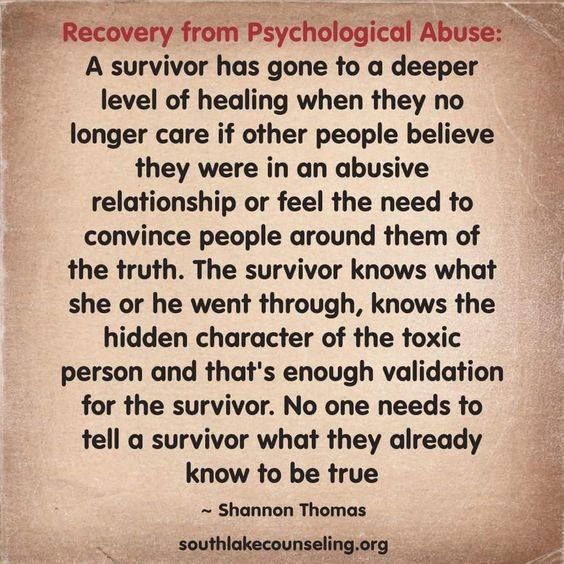 Therefore, he will present insults as something natural or even funny. He will not miss the opportunity to call his partner stupid, a loser, or even worse. If in response the victim is indignant, she is told that “I love it” and “you don’t understand jokes at all.” nine0003
Therefore, he will present insults as something natural or even funny. He will not miss the opportunity to call his partner stupid, a loser, or even worse. If in response the victim is indignant, she is told that “I love it” and “you don’t understand jokes at all.” nine0003
This also includes seemingly cute, but in fact offensive nicknames like “my pampushka”, “piggy”, “fool”. As a result, the victim gets used to such humiliating language in his address and begins to think that she is really stupid, fat and that she will not succeed.
2. “You are always…”
Anything can go on: you are late, you stumble, you make mistakes, you ruin everything. Such remarks are accompanied by poking and eye rolling, and after that the abuser will definitely say something like this: “It's good that you have me. What would you do without me." Hearing something like this regularly, the victim sooner or later comes to the conclusion that she is really useless and cannot cope without her “savior”. nine0003
nine0003
3. “No problem, they are our friends!”
The aggressor can easily subject the victim to public humiliation. For example, rudely play a trick on her in the presence of acquaintances or make fun of her awkwardness. To all claims, he will say that there is nothing of the kind in this, and since everyone is funny, then she should be funny too.
4. “Are you going to the circus with that make-up on? Come on, it's just a joke!"
Harsh sarcasm, silly jokes that are actually insults wrapped in third-rate humor are all that abusers love to use to destabilize the victim and make them feel worthless. If she starts to resent, she will definitely hear that she understood everything wrong and, in general, one cannot be so vulnerable. nine0003
5. “Others your age are already making millions.”
No achievement impresses an abuser.
- Got a promotion at work? A little late, of course, but nothing, for you, and this is commendable.
- Got a prize at an important competition? And what are you rejoicing about, this is not a victory.
- Did you manage to pay off your mortgage early? Surely your parents helped you.
After such statements, a person, of course, is no longer happy and thinks that his achievements are really ridiculous and mean nothing. nine0003
6. "Don't waste your time on this bullshit!"
If the victim has an infatuation, the abuser will not miss the opportunity to ridicule him in every possible way. Because his task is to deprive the victim of his own life and interests, so that she spends time and energy only on him.
Control
Abusers use any technique to subdue their partner, deprive him of his will and make him feel shame for any wrongdoing - real or imagined.
7. “Where are you? Why don't you pick up the phone right away?" nine0015
The toxic partner tends to track every step of his victim. He requires her to report on her affairs and movements, annoys her with calls and messages. Can put on the phone programs that control the location. Can follow the victim personally. In a word, he does everything so that the “toy” does not run away and gets used to feeling on a short leash.
8. “Yes, I read messages on your phone. And what is it?
Abusers without a twinge of conscience can conduct digital surveillance of their victim. Read messages in social networks and messengers, listen to the phone, check the browser history. In some cases, they even demand to provide them with passwords and invade the privacy of the victim quite openly. nine0003
9. “It's common money. Should I have asked?"
Emotional abusers do not consider it necessary to take into account the opinion of their victim and make decisions unilaterally. They can carry out some operations with common money behind the partner’s back. They can cancel an appointment for another doctor, refuse an invitation to a holiday, express dissatisfaction with the boss because the victim spends too much time at work. In a word, they behave as if half of them have no rights. nine0003
10. “No, I won't give you money. You will spend it on nonsense again.”
Financial violence is one of the favorite levers of aggressors. If the victim does not have his own income (unemployed, housewife, mother on maternity leave), they begin to reproach her with money, deprive her of finances for “wrongdoings” or give out tiny sums that are really not enough for anything.
But even if we are talking about a working and financially independent person, the abuser will still find how to leave him without funds. Put all the money in his account or stop paying the general mortgage. He will simply take everything he has earned, saying that the partner does not know how to handle money, and will force him to account for every ruble spent. nine0003
11. “Where is my supper? Bring it now!"
At first, abusers often seem nice and harmless, but at some point they may begin to communicate exclusively in an orderly tone. Do this, give that, go and buy it immediately, don't take those drugs anymore. Unquestioning obedience is expected from the victim, completely uninterested in her opinion and needs.
12. “Again you drive me crazy!”
Outbursts of anger - unpredictable and completely incommensurable with the actions that cause them - are a characteristic feature of the behavior of manipulators. A person who has been in contact with such a partner for a long time begins to be afraid and literally walks along the line so as not to provoke another explosion. Because screaming, assault or pogroms can start at any moment - it is enough to return home later than usual or not wash the dishes. nine0003
13. “You won’t succeed, let me be better”
Abusers behave as if the victim is not an adult, but a small child who can and should be told what to wear, where to go, who to be friends with, what to do . The opinion of the other party is not taken into account. Such a dictatorship is often served under the sauce of caring. The task is to deprive a person of independence and make him believe that he himself is not capable of anything.
What is taught at women's trainings
Personal experience: how debt makes life hell
8 types of teachers you should not trust
Someone else's body is none of your business. Why people have the right to look the way they want
8 types of people who do not value other people's time and are incredibly annoying
10 tricks of scammers that even smart people fall for
Instilling guilt
Guilt is an excellent lever, with the help which is very easy to manipulate. And abusers know this very well.
14. “I can see you are flirting!” nine0015
An abuser's victim may turn out to be unfaithful at any time, even if she herself does not know it. Did you smile at the waitress? He must have been trying to play. Did you go to a corporate party in a beautiful dress? Well, everything is clear, this is only for the men from the office to stare.
A "traitor" can be followed, he will be forced to make excuses for every look, sigh or smile, for every minute of being late - as if the truth is somehow to blame. And this is not to mention the screams, scandals and ugly scenes, including public ones. nine0003
15. “Aren't you ashamed?!”
If the behavior of the victim does not meet the expectations of her partner, she will definitely be told how worthless she is and how she disappointed such a good person. This will be done, for example, with the help of lengthy notations and replies.
16. “I do so much for you! And you…”
When the victim tries to argue, object or defend his point of view, manipulators often begin to put pressure on guilt. They make it clear that they are ready for anything for the sake of relationships, and the other half is just an ungrateful bastard who does not appreciate anything. By the way, this technique is very fond of not only toxic partners, but also parents: “We have invested so much in you! Why do you hate us so much?" nine0003
17.
It doesn't matter what exactly goes wrong in the life of an abuser - the boss shouted, the project failed, the tire was punctured, he needs to find the culprit. And for this role they usually choose someone defenseless and dependent, someone who cannot give a proportionate answer or send them away.
Isolation and rejection
Abusers often try to quarrel with friends and relatives and force them to leave work. In a word, to make sure that the victim is left alone, without anyone's support. nine0003
18. “These friends were given to you. Let's have a better time together.”
It is unprofitable for an abuser to have his “property” in the form of loved ones. After all, they can notice his inappropriate behavior earlier than the victim, blinded by feelings, and advise her to leave. Therefore, it is very important for an emotional abuser to stand between his half and her social circle. He will set her against friends, quarrel with relatives, directly or indirectly interfere with communication. For example, he will convince the victim that her family does not love him and unfairly offends him, or that his friends are actually jealous of her. nine0003
19. “I don't want to talk to you.”
One of the types of emotional abuse is ignorance. For some “offence”, the victim is punished with coldness and detachment. She is deliberately deprived of tenderness or sex, they stop talking to her, they literally stop noticing her, as if she is an empty place. If people aren't living together yet, the abuser may go off the radar and stop answering calls.
As a result, the victim experiences a very rich palette of negative feelings - from discomfort to complete despair - and after some time is ready to beg for forgiveness, just not to feel rejected. And the abuser generously forgives her in order to arrange an emotional swing for her again after some time. nine0003
20. “Are you crying? Well, okay.”
You can't expect sincere warmth and support from an abuser. If a partner is upset and going through a difficult time, it is easy for the emotional abuser to ignore it, pretend not to notice, or say that the partner has no right to feel what he feels.
Devaluation
The abuser does his best to make the victim feel insignificant and worthless.
21. “Just think! Is that a problem?" nine0015
The victim tells his partner about something important to her, shares her feelings, and he demonstrates with his whole appearance that this is nonsense. This behavior is called depreciation. It can be very hurtful and undermine your sense of self-worth.
Devaluation can be expressed not only verbally. There are other gestures like eye-rolling, snorting and poking.
22. "You take everything too personally"
Such phrases can be a sign of gaslighting - manipulation, with the help of which they try to convince the victim of his inadequacy. Make believe that she is too vulnerable and impressionable, or even comes up with something that is not there. Typical gaslighter phrases: "You're exaggerating", "You just imagined!", "Don't be so nervous!", "Why are you making this up?". nine0003
If the abuser is pinned against the wall with irrefutable facts, he will still deny to the last that he insulted you, raised his hand, followed you or hid money. Or he will fall into a rage and declare that it was the victim who brought him to sin, which means that she herself is to blame for everything. All this is necessary to destabilize the partner and achieve his obedience.
What to do if you are in a relationship with an abuser
Julia Hill
Psychologist, member of the Professional Psychotherapeutic League, blogger. nine0003
Why is it difficult to end a relationship?
2. Abuse is perceived as a concern: “Where are you going?”, “When will you be?”, “Don't communicate with her/him”.
3. The person does not notice any violence, because he found himself in a scenario familiar from childhood. The partner reminds him of a parent.
A parent can be called an abuser if he is domineering, strict, makes unbearable demands on the child, suffers from alcohol addiction, and is anxious and controlling. Love is associated with violence, and it is this scenario that lays the foundation for all future relationships. Leaving an abuser is like leaving a parent. nine0003
To rebuild the usual scenario, you have to go back in time. Because in a relationship with an abuser, a person is trying to solve children's problems. Often, after breaking one such relationship, he immediately falls into another. Just, for example, there the husband no longer drinks and beats, but is jealous and controls every step.
What to do
1. Consult a psychologist. This is the most effective, but not always affordable way.
2. Find in your story someone who became the source of the "love is violence" belief. Think about how interacting with someone close to you is reminiscent of your current relationship with your partner. This is not always easy to do, because the psyche is on the defensive against traumatic memories. Often people say: “There was nothing like that”, “I don’t remember”. This is fine. It means that you are not yet ready to face strong feelings. nine0003
3. Understand that a partner is a replacement for your parent. Children cannot help but love mom and dad, because they are dependent on them. The child's psyche is very adaptive and allows you to become attached even to those adults who beat and offend.
Your inner child doesn't want violence, he wants love. But in your understanding, it is either equal to violence, or comes after it.
But now you are an adult and have the right to choose whether or not to tolerate an unhealthy relationship. Try to realize that your choice of partner is not due to love, but to the desire to complete the children's scenario. Then you will see something more in the whole situation and it will be easier for you to cope with it. nine0003
4. Get rid of guilt. Sometimes it is enough just to realize it and analyze it. Guilt arises from your belief that if you are treated this way, then you deserve it, something is wrong with you and no one needs you anymore.
5. Expand your social circle, which is often limited in dealing with an abuser. Making new friends and experiences will help you realize your worth, build your self-respect, and deal with the fear of being alone that often stems from point 4.
Not all people are ready to build healthy and equal relationships. Share this article on social networks so that your friends and loved ones know who it is better to stay away from and not waste their lives and health on abusers.
Read also 🔥🔥🔥
- “He followed me with a hammer and repeated that he would hit my head”: 3 stories about life with an abuser
- 6 scenarios of unhealthy relationships that Soviet cinema dictates to us
- How popular recipes for family happiness destroy relationships
how to identify and deal with it in relationships
Such phenomena have no place in healthy relationships
Victoria Artemova
Tags:
Marriage and relationships
healthy relationships
all about relationships
domestic violence
abusers nine0003
Verbal abuse is sometimes difficult to recognize, but it can become a constant companion in your relationship. Masters of manipulation greatly affect your self-esteem by creating the illusion of caring for you. Using words to punish is one of the most hidden forms of control, and you may feel like you have a very loving spouse. In fact, insults have a very serious effect on the psyche and sometimes harm as much as physical abuse.
Verbal abuse is an act of verbal abuse that involves aggressively criticizing, insulting, or condemning another person. nine0003
"Verbal abuse can actually refer to one partner's attempt to control the other with language," says expert Amelia Peck, licensed marriage and family therapist. “It could be a speech that is used to make a partner feel less valued or important in a relationship,” she said. Such statements are usually aimed at causing a feeling of self-doubt. At the same time, they may well take different forms - shouting and open humiliation or more subtle manipulative tactics. nine0003
Physical abuse is easy to recognize. There is no doubt that you have been abused when a hand is raised against you. But verbal abuse is much more difficult to define. There are usually no injuries, wounds, scars or bruises - only terrible sensations. However, both can have long-term consequences, such as low self-esteem, depression, anxiety, and so on. Emotional abuse is quite difficult to identify if you don't know the signs.
Are you concerned that your partner may verbally abuse you? Read on to learn about the main wake-up calls that you definitely shouldn't ignore.
Common signs of verbal abuse
You start to be called strange nicknames
Once your partner starts using various strange nicknames, it's time to think. If such names seem derogatory to you, then most likely they are. Some nicknames are definitely offensive. Others are more like ambiguous compliments that are much harder to identify. In these cases, we advise you to listen to your intuition. And remember that verbal abusers quite often resort to "constructive criticism" to negatively impact their partner's self-esteem. “Such aggressors, with the help of speech, try to do everything possible to arouse feelings of insecurity and fear in you,” the expert explains. nine0003
If your partner constantly criticizes you, claiming that he is doing it for your own good, then you can safely consider this an extremely alarming signal. In fact, this is one of the most insidious forms of verbal abuse.
They try to put you down
Critical, sarcastic or derisive words that do not carry anything but humiliation (whether in private or in the presence of other people) is a form of verbal abuse. These could be comments about how you dress, talk, or your level of intelligence. Remember that any remarks that make you feel inferior are most often intentional. “When a partner verbally insults you even in such a seemingly mild form, then you should understand that equality or fairness in relationships is clearly not at the center of his value system. They make all these connections solely for the sake of making the partner feel “small” and themselves strong and powerful,” the expert is sure. nine0003
They raise their voices at you
When your partner starts yelling for no reason, you automatically start worrying that everything you say might annoy him. If you feel that in communication with a person you are walking through a minefield and you begin to be afraid to openly express your thoughts, this is a very bad sign. Emotionally unstable people who raise their voice at you in order to intimidate you are unlikely to ever become a strong support and support for you in a relationship. nine0003
You are being threatened
In fact, there are no empty threats. Whether or not a person intends to take some action, the very fact of such intimidation should not be taken lightly. Even if your partner says that he is only joking. And the stronger the feeling of fear that you experience because of such behavior, the more you should be wary.
You are accused of other people's actions
When your partner loses his temper, does he try to blame you for his breakdown and subsequent behavior? This is one of the most indicative signs of verbal abuse, which is most often manifested in the narcissistic type of people. They quite often build logical chains that are difficult to perceive, motivating their incorrect behavior. This is done in order to confuse a person and further make him believe that he himself provoked such an attitude towards himself. As a result, the partner apologizes to the abuser, and he assures that he would never have caused harm in a normal situation. nine0003
“It is important to remember that people in unhealthy relationships are not always abused. Often, after one such episode, the couple reconciles and for some time passes into a kind of "honeymoon" phase. This leads to emotional swings that ultimately encourage victims to justify their partner’s abuse or even take the blame for it,” the expert explains.
Your feelings are rejected
If you regularly experience that your partner refuses to discuss issues that hurt or upset you, he may be avoiding responsibility. Talk about words and actions that hurt you stops, and any interest in the topic of abusive behavior is simply ignored. This is a kind of gaslighting (prolonged psychological manipulation that makes the victim doubt his sanity, judgments and memories - ed. note): at first, the partner simply turns a blind eye to the problem for a long time, and then tries to convince you that nothing happened Or you remember everything wrong. This is usually followed by a series of those very “accusations of the victim” that we have already written about above. nine0003
“Many of my clients who have experienced or are experiencing verbal abuse in relationships experience the effects of emotional abuse and gaslighting. They often say that partners speak for them, how they feel. And this, of course, is almost entirely different from how the client actually feels. As a result, a person literally loses the ability to understand and be aware of his real feelings and emotions, ”the therapist shares his experience.
You are being manipulated
Regular and persistent use of threatening words can lead you to act in ways that are uncomfortable for you. This form of verbal abuse most often occurs towards the end of a marriage. If your spouse does not want a divorce for his own reasons, he will say literally anything to play on your emotions and keep you in the family. Any manipulation of this kind should be regarded as an attempt to force you to submit to other people's desires, regardless of what is best for yourself. nine0003
Signs that you have been verbally abused
You have low self-esteem the day becomes a heavy emotional routine.
You feel like a different person
When you are verbally abused regularly, it can completely change the way you feel about yourself. You are so passionate about your other half that you simply leave the person you used to be and don’t even notice it. Losing your voice, losing personal boundaries, changing the way you think - these are all signs that you are in an unhealthy relationship. Think about it, have you ever justified the behavior of your partner with the help of arguments that you would never have listened to before? If yes, then it's probably time to seek help. nine0003
"Often I hear clients say that the justification for continuing the relationship was that 'at least the violence wasn't physical.' Physical or not, the violence is still real. And when I hear people use these arguments in their stories, I understand how long they had to suppress their feelings and emotions and struggle to find their own voice, ”says the expert.
You feel like you're walking in a minefield
If you don't feel safe when your partner is around, or if you catch yourself thinking you're watching every word you say, that's a very bad sign. Everything you do never seems good enough to you. When you feel like you can't be your full self, it might be time to start thinking about whether everything is right in your relationship. nine0003
“When I hear clients tell me that they are too afraid to talk about something to their partners because of their possible reaction, I understand that the person is clearly not in the healthiest relationship,” the expert notes.
How to deal with abuse in a relationship
Violence is never justified. Remind yourself that it's not your fault and think about how to leave. If the person you love insults you and neglects your feelings, you stop considering yourself (and your needs) to be of any importance. nine0003
“Listen to those feelings that go against what is right and good for you. If you are ever told that your thoughts, emotions are not valued, it's time to seek support, an expert will help you enter a healthier relationship, ”says Peck.
When you realize you are being physically or verbally abused, try to get help. Here are some rules to keep in mind if you are experiencing emotional abuse. nine0334
What to do: Seek advice from a relationship therapist for couples or singles.
What to do: Surround yourself with a “support group” of family and friends. Discuss with them what is happening and how you feel.
What to do: Tell the abuser about his offensive words and discuss how this behavior is unacceptable for you. Set boundaries and explain in detail what you don't want in your relationship for anything. nine0003
What to do: divorce or separate (if nothing else helps). If you make this decision, try to hire a lawyer who has experience working with victims of domestic violence. Always stay in touch with your relatives and friends. Focus on learning about the positive experiences of ending an abusive relationship.
What to do: seek shelter if the steps you have taken make you feel that you are in danger.
Do not: get into conflict with the offender. If he gets angry, try to remain calm, walk away and do not react to him.
Do not: blame yourself for the way another person behaves.
